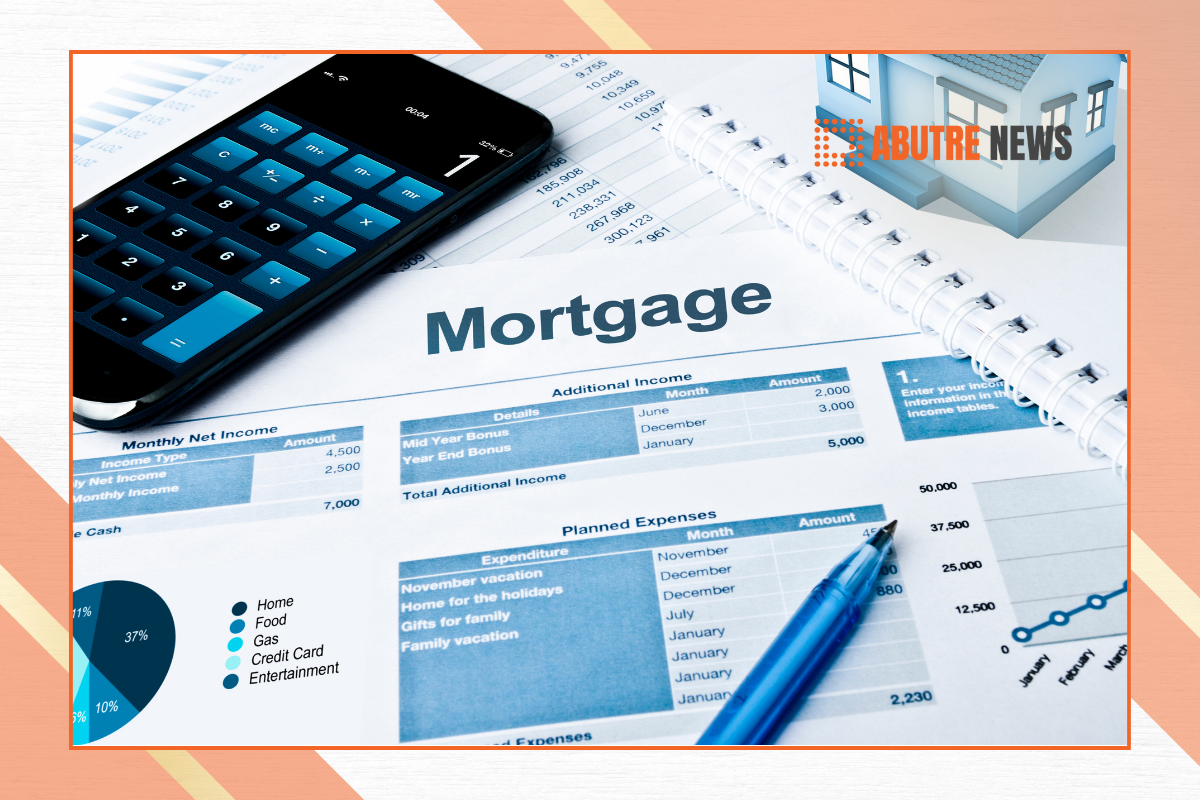We recommendation is:
A guide to understanding Mortgage

What is Mortgage?
A mortgage is a financial arrangement allowing individuals to buy real estate, typically a home, through a loan provided by a lender. The property serves as collateral, and repayments, covering the loan amount plus interest, occur monthly. Mortgages make homeownership feasible by spreading the property cost over time, while also securing the lender’s investment.
What are Interest rates and their impact?
An interest rate is the percentage representing the cost of borrowing or the return on investment. In a mortgage, it’s the fee charged by the lender on the borrowed amount, shaping the total interest paid. Rates can be fixed for stability or variable, changing with market conditions. Grasping interest rates is vital for evaluating borrowing costs and making sound financial choices in loans and investments.
-
Impact of Interest rate on mortgages:
The Interest rates have a big impact on mortgages:
-
Cost of Borrowing:
Higher interest rates mean you pay more overall for your mortgage. It could also increase your monthly payments.
-
Affordability:
If interest rates go up, it might be harder for some people to afford a mortgage or qualify for a higher loan amount.
-
Housing Market:
Interest rates can affect how many people want to buy homes. Lower rates usually attract more buyers, while higher rates might slow things down and impact home prices.
-
Refinancing:
When interest rates change, you might have a chance to refinance. Lower rates could save you money, but higher rates might make refinancing less appealing.
Check out the Mortgage calculator, which determines the mortgage payment and provides a mortgage payment schedule. The calculator also shows how much money and how many years you can save by making prepayments.
Different Types of Mortgage
Let’s explore the specifics of fixed and variable mortgages:
Fixed-rate Mortgages:
- Key Features: The interest rate remains constant throughout the entire loan term.
- Advantages: Monthly payments are predictable, providing stability for budget planning.
- Potential Risk: Limited flexibility if market interest rates decrease.
Variable-rate Mortgages:
- Key Features: Interest rates can vary based on market conditions.
- Advantages: Potential for lower initial rates, adaptable to a changing market.
- Potential Risk: Payments may rise with increasing interest rates, introducing budgeting uncertainties.
Explain the Nuances of Closed and Open Mortgage?
Let’s simplify the nuances of closed and open mortgages, focusing on their trade-offs in terms of interest rates and flexibility:
Closed Mortgages:
- Trade-Offs: These frequently have lower interest rates, saving you money. However, they come with less flexibility, making it challenging to make significant changes or pay off the mortgage early without facing penalties.
Open Mortgages:
- Trade-Offs: While open mortgages offer flexibility to make extra payments or pay off the entire mortgage early, they often come with higher interest rates compared to closed mortgages.
In essence, closed mortgages can save you money with lower rates but offer less flexibility. Conversely, open mortgages offer flexibility but may entail higher interest costs. It’s crucial to select the type that aligns best with your financial needs and priorities.
What are Amortization Period, Term, and Payment Frequency?
Understanding the intricacies of these terms empowers you to make informed decisions tailored to your financial strategy and preferences. Let’s delve into the details of these crucial mortgage terms:
Amortization Period:
- Definition: The total duration required to fully repay your mortgage, considering both principal and interest.
- Significance: Opting for a longer amortization period results in lower monthly payments, but generally entails higher overall interest costs. On the flip side, opting for a shorter period results in higher monthly payments, but ultimately entails less interest paid over the long run.
Term:
- Definition: The specific length of time for which you commit to the conditions of your mortgage agreement (e.g., 5, 10, or 30 years).
- Significance: At the end of each term, you have the opportunity to renegotiate terms or renew the mortgage. Choosing shorter terms typically accompanies lower interest rates, whereas opting for longer terms ensures stability in interest rates over an extended period.
Payment Frequency:
- Definition: The frequency at which you make mortgage payments—options include monthly, bi-weekly, or weekly.
- Significance: Choosing a more frequent payment schedule, such as bi-weekly or weekly, can result in cost savings over time by reducing the overall interest paid compared to monthly payments.
Requirements for mortgage approval.
Understanding these detailed requirements gives you a clearer picture of what lenders consider when evaluating your mortgage application.
Credit Score:
- A good credit score, usually above 700, reflects your creditworthiness.
- Lenders assess your credit score to evaluate the risk of lending to you. Higher scores often result in lower interest rates and more favorable terms.
Income Verification:
- Verification of your stable and sufficient income through pay stubs, tax returns, or employment confirmation.
- Lenders want assurance that you have a reliable income to meet mortgage payments, enhancing your ability to repay the loan.
Down Payment:
- A down payment, typically ranging from 3% to 20% of the property’s purchase price.
- A larger down payment not only increases your chances of approval, but can also lead to better interest rates and lower monthly payments.
Ratio of Debt to Income:
- Calculating your debt-to-income ratio by dividing your monthly debt payments by your gross income.
- Lenders use this ratio to assess your capacity to manage additional debt responsibly, ensuring you can comfortably afford the mortgage.
Employment History:
- Providing a record of your stable employment, typically covering the past two years.
- A consistent employment history demonstrates your reliability and strengthens your eligibility for mortgage approval.
Determining the Affordability
Determining whether you can afford a mortgage involves a detailed examination of two essential ratios: Gross Debt Service (GDS) and Total Debt Service (TDS). These ratios serve as fundamental tools for lenders to evaluate your borrowing limits based on both your income and existing debts.
Gross Debt Service (GDS) Ratio:
- GDS delves into all housing-related expenses, encompassing mortgage payments, property taxes, heating costs, and potential condominium fees.
- GDS is computed by dividing your total housing costs by your gross annual income.
- Lenders set a GDS threshold to ensure that your housing expenses stay within a specified percentage of your income. This ratio offers a deep understanding of your capability to manage direct homeownership costs.
Total Debt Service (TDS) Ratio:
- TDS takes a broader view, considering all your debt commitments, such as housing costs, credit card payments, car loans, and personal loans.
- TDS is determined by dividing your total debt payments by your gross annual income.
- Similar to GDS, there’s a defined limit for TDS. This ratio allows lenders to assess your ability to handle all your debt obligations collectively and ensures that your overall debt burden remains within a reasonable percentage of your income.
The Bottom Line
In conclusion, when assessing the affordability of a mortgage, it’s imperative to adopt a comprehensive perspective that extends beyond immediate obligations. Consider how the mortgage aligns with your long-term financial wellness and overarching goals. Beyond monthly payments, factor in the importance of maintaining an emergency fund, contributing to savings, and exploring investment opportunities to foster financial flexibility and growth. Deliberate on the implications for your retirement savings, emphasizing a harmonious balance between mortgage commitments and securing a robust financial future.
Lastly, do not overlook your personal and lifestyle goals; assessing affordability should be a holistic endeavor that goes beyond mere numerical considerations, ensuring your mortgage aligns with the life you envision.
Check out more publications on mortgages below to get a better understanding of the subject:




